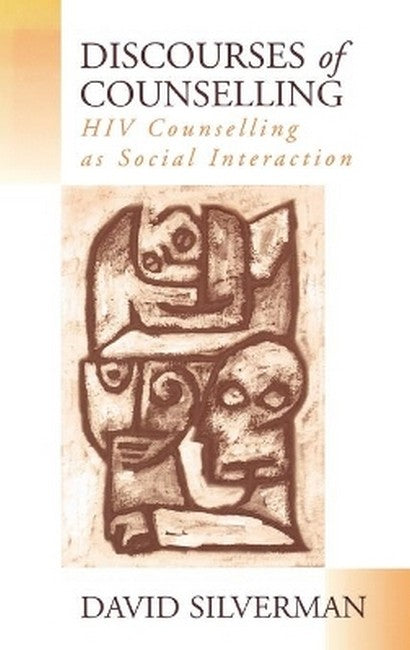David Silverman trained as a sociologist at the London School of Economics and the University of California, Los Angeles. He taught for 32 years at Goldsmiths, University of London, where he is now Emeritus Professor in the Sociology Department as well as Visiting Professor in the Business Schools, King's College, London, Leeds University and University of Technology Sydney and Adjunct Professor, Faculty of Education, Queensland University of Technology. He is interested in conversation and discourse analysis and he has researched medical consultations, shelters for homeless people and HIV-test counselling. He is the author of Doing Qualitative Research (sixth edition, 2022) and A Very Short, Fairly Interesting, Reasonably Cheap Book about Qualitative Research (second edition, 2013c). He is the editor of Qualitative Research (fifth edition, 2021) and the Sage series Introducing Qualitative Methods. In recent years, he has offered short, hands-on workshops in qualitative research for universities in Europe, Asia, Africa and Australia. Now retired from full-time work, he aims to watch 100 days of county cricket a year. He also enjoys spending time with his grandchildren and great-grandsons as well as voluntary work in an old people's home where he chats and sings with residents.
Request Academic Copy
Please copy the ISBN for submitting review copy form
Description
PART ONE: INTRODUCTION What Is HIV Counselling? Basic Methodological Issues PART TWO: COMMUNICATION IN HIV COUNSELLING Communication Formats in HIV Counselling PART THREE: DELICATE DISCUSSIONS The Construction of `Delicate' Objects in Counselling Offering the Agenda to the Patient Delays in Delivering Test Results in Post-HIV-Test Counselling Interviews PART FOUR: ADVICE-GIVING Advice-Giving and Advice-Reception Resisting Advice Concealing Advice The Advice-as-Information Sequence PART FIVE: CONCLUSION Counselling as a Discourse of Enablement Implications for Practice
`This study of the tacit communicative skills that inform verbal interaction between counsellors and clients in various kinds of HIV counselling... primarily informed by conversation analysis... is sensitive to the requirements of counsellors who will want to know the practical benefits for them which emerge from this kind of study of interaction in counselling sessions' - British Journal of Sociology `Many texts claim to be based in, or to be written for, the scientist-practitioner (or the practitioner-researcher), yet seldom have I read a book that reaches this audience in such a useful and effective manner. This book not only describes how research can inform practice, but offers the experience as you read it... I was particularly struck by the sensitivity to language that Silverman illustrates throughout the book. I found that, without trying, I was listening to my clients with a different attunement, somehow noticing subtle nuances with a greater range of possible interpretations... Regardless of paradigm, the professional who has a role as a listener will be enriched by reading this book and thinking seriously about their own practice' - The Psychologist `This book is the result of several years' research into HIV counselling... a collage of intertwining and reflexive segments on different aspects of HIV counselling... Talk about sex and death can be highly absorbing, especially when presented with the fastidious exactitude of CA, and here the transcriptions... are of a rare quality. Introducing and addressing such "delicate" topics... is easier if the counsellor is "in control of" the agenda. Thus there is often an ambiguity in the interactive status of interviews which lean on the one hand towards the patient-centred approach, and on the other the retaining of control by the professional... While power and resistance may be ubiquitous in everyday life, it is through the detailed examination of their local reproduction in talk that we are able to gain empirical knowledge of their actual form and practical implications. In few areas of contemporary life could this assertion be made more precisely than in the discourses on sexuality which Silverman examines in this study' - Journal of Sociolinguistics `This book reports the author's conversation analyses (CA) of counselling sessions, largely in HIV testing clinics in the USA and UK... Throughout, the text contains examples from actual interactions illustrating the sometimes clever and subtle skills deployed by the speakers... It is perhaps in this detail that the quality of the book lies. In this respect the author's claims for the superiority of CA's transcription techniques above the invented examples and tidied up transcripts of most existing accounts of counselling are borne out. For practitioners reading the book, it must be like looking into a mirror for the first time, perceiving just what it is they have always done without realising it... The view that meanings of utterances can be understood by attending to the preceding moves is also strongly supported, the relevant material being made fully available to the reader; herein lies the chief claim of CA to fulfil conventional standards of scientific quality' - Medical Sociology News

